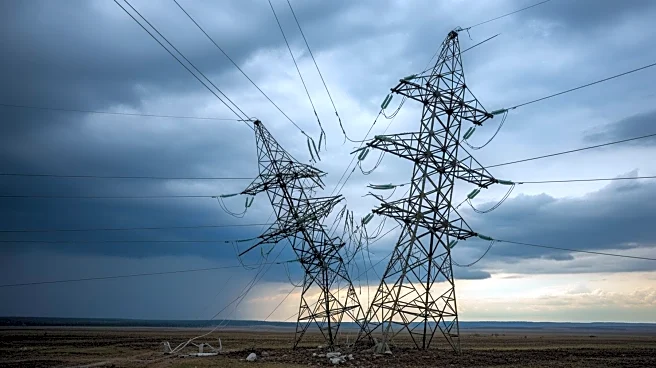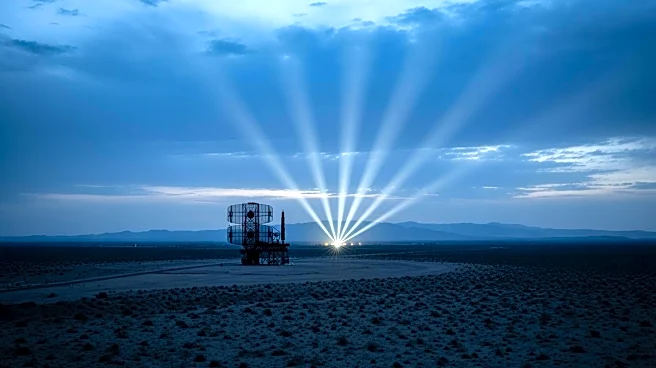What's Happening?
Russia has launched a significant missile and drone attack on Ukraine, targeting key cities and energy infrastructure. The attack occurred overnight on November 8, with cities such as Kyiv, Kremenchuk,
Dnipro, Kharkiv, and Chernihiv being primary targets. The use of Kinzhal hypersonic missiles, along with cruise and ballistic missiles, has been reported. In Kyiv, explosions were heard early in the morning, leading to fires in the Pechersky district due to falling drone debris. The State Emergency Service reported damage to vehicles and structures, although the fires were extinguished. Energy Minister Svitlana Hrynchuk confirmed that the attacks have resulted in emergency power outages across several regions, including Odesa Oblast. The situation is being monitored, and efforts to restore power will commence once the energy system stabilizes.
Why It's Important?
The attack on Ukraine's energy infrastructure is part of Russia's ongoing strategy to weaken the country by targeting critical resources, especially as winter approaches. These strikes have the potential to severely impact Ukraine's ability to provide essential services to its citizens, exacerbating the humanitarian crisis. The disruption of energy supplies can lead to significant economic and social challenges, affecting millions of people. Additionally, the use of advanced weaponry like hypersonic missiles indicates a heightened level of aggression, which could escalate tensions further. The international community may respond with increased support for Ukraine or further sanctions against Russia, influencing global political dynamics.
What's Next?
Ukraine is likely to intensify its defense efforts and seek additional international support to counteract the ongoing attacks. The government may implement measures to protect and repair energy infrastructure swiftly to mitigate the impact on civilians. International diplomatic efforts could be ramped up to address the conflict, potentially involving negotiations or increased sanctions against Russia. The situation remains fluid, with potential for further military engagements or strategic shifts in response to the attacks.
Beyond the Headlines
The attacks highlight the vulnerability of critical infrastructure in conflict zones and the broader implications for energy security in Europe. As Ukraine faces repeated strikes, there may be long-term shifts in energy policy and infrastructure resilience strategies. The conflict also raises ethical questions about the targeting of civilian infrastructure in warfare, prompting discussions on international humanitarian law and the protection of non-combatants.









